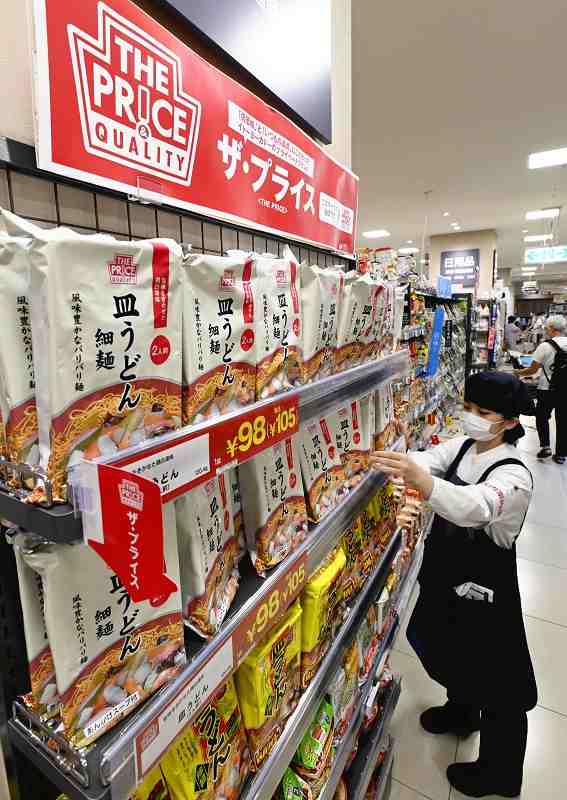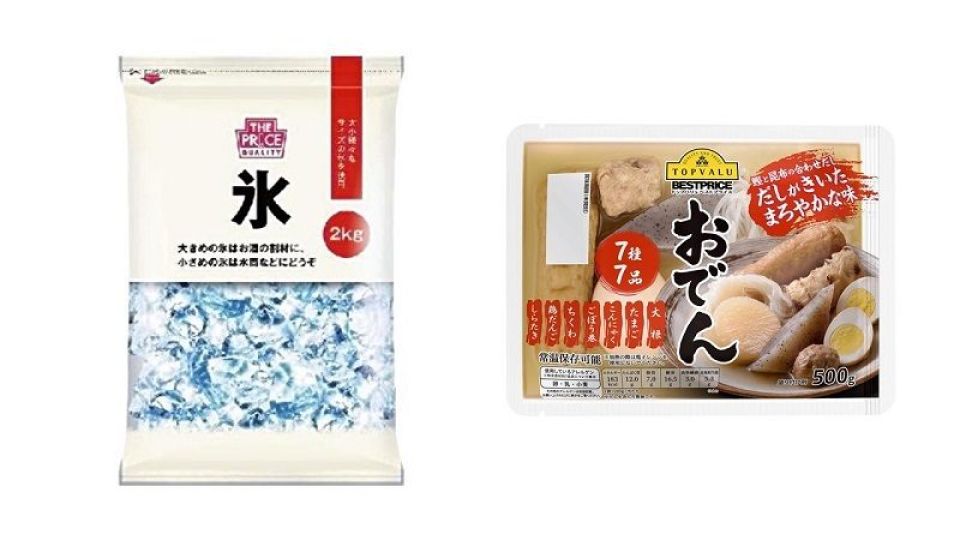September 15, 2022
TOKYO – Major supermarkets and food manufacturers are working hard to keep their private brands inexpensive amid the surging cost of ingredients, finding ways to cut costs even if it’s only a few yen per item.
“I was surprised by the low price,” said an 81-year-old homemaker, as she held a package of bread sold under Ito-Yokado Co.’s private brand The Price, at the supermarket chain’s Wako store in Saitama Prefecture.
The package contains six slices of bread and retails for ¥95, about half the price of similar products by major manufacturers.
“I live on a pension, so it’s nice to get inexpensive foods for everyday meals,” Hashimoto said.

Sara-udon noodles from Ito-Yokado’s The Price private brand are seen at the Ito-Yokado Wako store in Wako, Saitama Prefecture.
The Yomiuri Shimbun
Due to the rising cost of such ingredients as flour and cooking oil, as well as for shipping, the price of many food items is going up. In contrast, the price has remained unchanged for many private-brand products put out by major supermarkets, making them highly popular.
Sales of The Price brand have sharply increased.
The Price products started being sold on a trial basis in August at some outlets of Seven-Eleven Japan Co., the convenience store chain that belongs to the same corporate group as Ito-Yokado.
Aeon Co.’s private brand, Topvalu, saw sales of cooking oil, pasta and margarine go up by about 50% in July from the same month last year. Although the company did raise the price of some products from July, it has “kept the price of many items unchanged, gaining consumer support,” a company spokesperson said.
Competition at the penny level
So how are the prices kept low?
“Private brands have the advantage of being able to cut waste through the efforts of the companies that produce them,” said Kazunori Araya, the manager of Ito-Yokado’s food products division.
Ito-Yokado can make all its own decisions regarding its private brand, from ingredients to product planning. It also does not need to factor in advertising and promotion costs, unlike conventional manufacturers.
“We systematically outsource production of the number of items that we want to sell. We purchase all the products, so there’s no surplus left at manufacturers. This facilitates efficient production,” said Koji Wada, director of Aeon Topvalu Co.
For supermarkets making efforts to sell products for less than their competitors, even if it’s just a single yen cheaper, the exact methods used to keep prices low are trade secrets. However, their individual efforts indicate that low prices have resulted from a series of small improvements.
Ito-Yokado, for example, has simplified package design by using fewer colors to reduce printing costs.
Aeon switched delivery methods of retort pouch oden products from refrigerated trucks to room temperature trucks, which reduces delivery costs by about ¥10 per product. For its frozen pasta, the company has been able to cut intermediary costs by doing business directly with a factory in Italy.
Lifedrink Company, Inc. in Osaka, which manufactures beverages in plastic bottles for about 20 client companies, has limited its products to water, tea and carbonated water, and uses standardized bottles.
For mineral water, the only thing the company has to do is to change a label at its factories. These measures have lowered prices by about 30% compared to major manufacturers.

